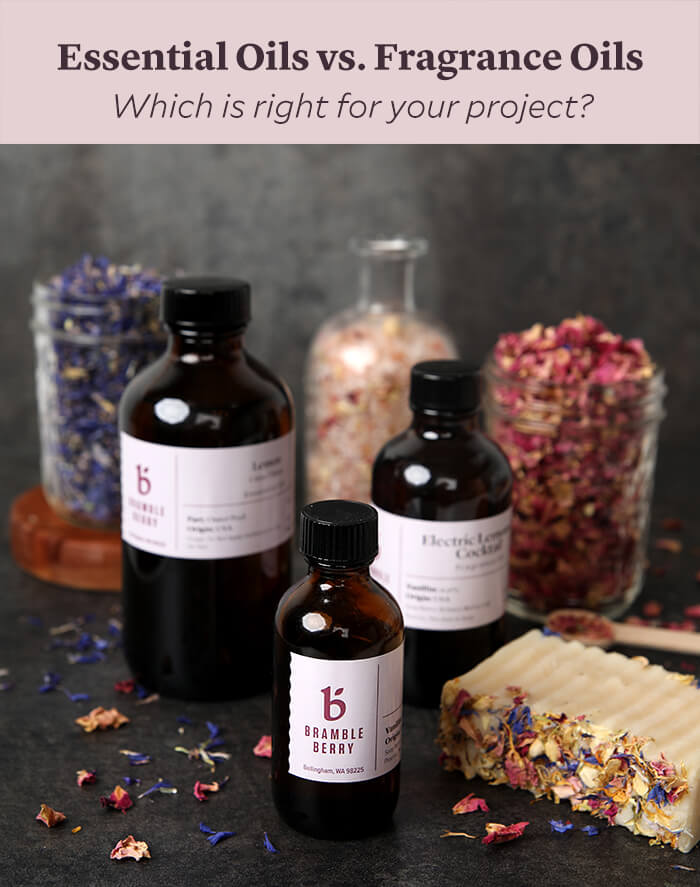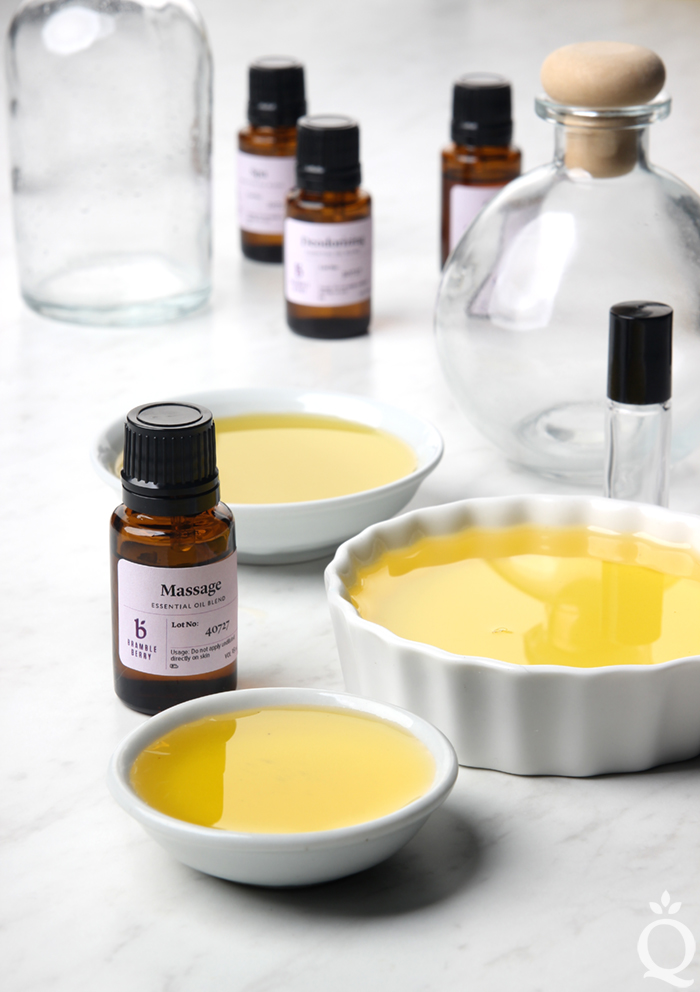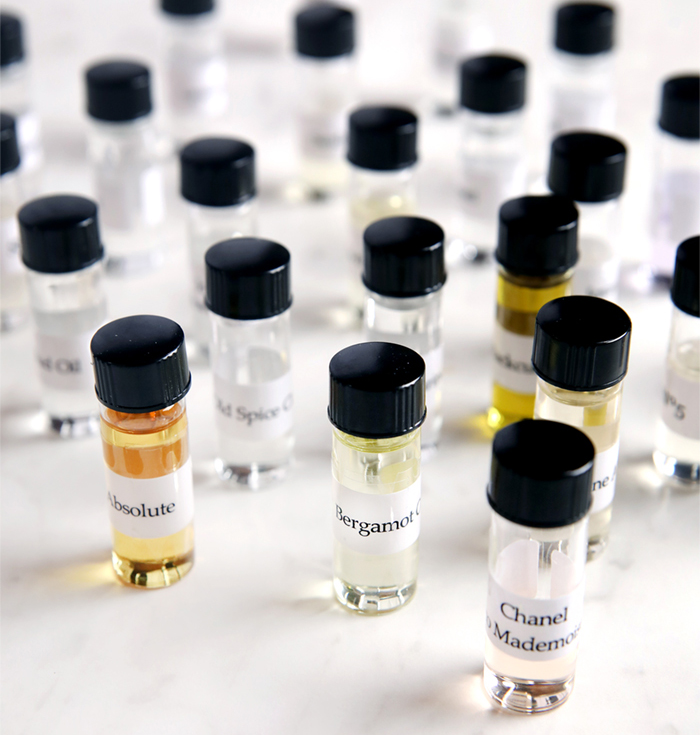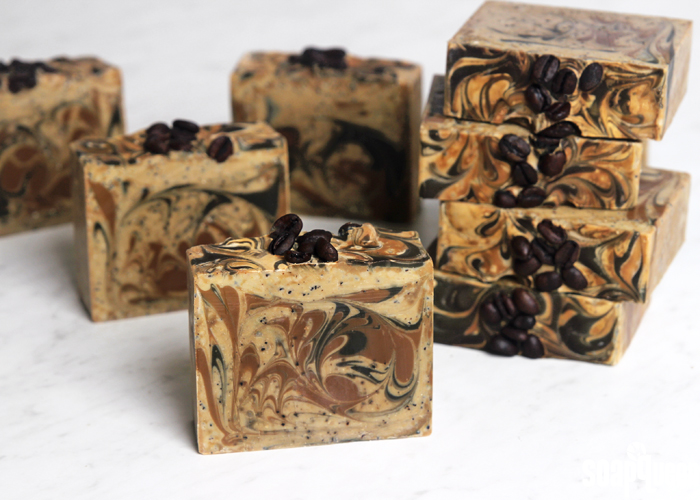
When it comes to scenting handmade soap, the possibilities are endless. There are so many amazing scents to choose from – so many that it can be overwhelming. Learn about the difference between essential oils and fragrance oils to help you choose the best option for your recipe.
Essential oils
If you prefer natural scents, essential oils are a great choice. They’re extracted from herbs, flowers, and plants, most often through steam distillation. That involves heating the components until a gas is released, then condensing the gas back into a liquid. It’s a gentle process that ensures the sensitive compounds don’t break down.
Our essential oils are 100% pure unless otherwise stated. Learn more in our Essential Oil Philosophy.

You can choose from tea tree, lavender, peppermint, and more. Find out how much to use in your recipe with our Fragrance Calculator. If you like more complex scents, you can blend them or try these premade blends.
However, not everything in nature produces an essential oil – you won’t find strawberry or vanilla. That means there are fewer options to choose from. It’s also important to read the descriptions before use. Citrus essential oils fade in cold process soap, oils like cinnamon and clove can’t be used in leave-on products, and others like juniper berry can’t be used if you’re pregnant or if you have kidney problems.
Pros
Cons
- Fewer options
- Some can fade in cold process soap, some can’t be used in leave-on products, others can’t be used with certain health conditions

Fragrance oils
Fragrance oils are synthetic. They’re created with a mix of aroma chemicals and natural ingredients like essential oils, extracts, and resins. Learn more in the Fragrance 101 post.

Just one fragrance oil can be made up of 40-80 materials – luxury perfumes are often made with 5 times that number. You can choose from more than 200 scents with multiple notes, including Champagne, Coastal Rain, and Moonstone. You’re not limited to natural sources that produce essential oils.
We choose all our fragrances based on how they smell after 6 weeks of curing in cold process soap. If the scent is too light or if they’re too hard to work with, they’re not added to our collection.
Like essential oils, make sure to read the descriptions. Some fragrances accelerate cold process soap and others discolor. Not all of them work for certain designs.
 Espresso Fragrance Oil discolors, so we chose a brown color palette for this Coffee Soap.
Espresso Fragrance Oil discolors, so we chose a brown color palette for this Coffee Soap.
Pros
- Come in more than 200 varieties
- More stable in cold process soap
- Skin safe and can be used in soap, lotion, bath bombs, and more
Cons
- Synthetic
- Some can accelerate or discolor in cold process soap
Which option you choose comes down to personal preference. We recommend experimenting with both – you may find you prefer one or the other, or you like using fragrance oils and essential oils.
The post Essential Oils vs. Fragrance Oils appeared first on Soap Queen.






Keine Kommentare:
Kommentar veröffentlichen